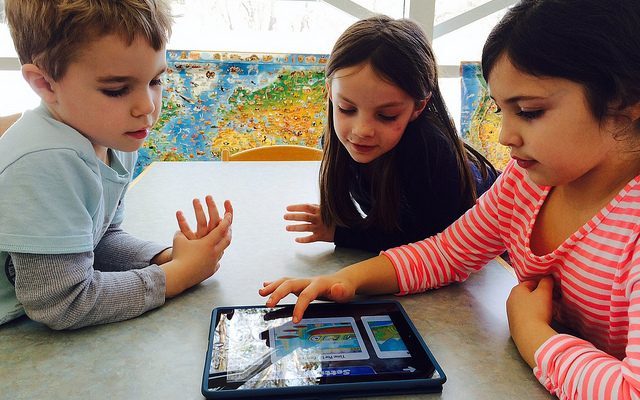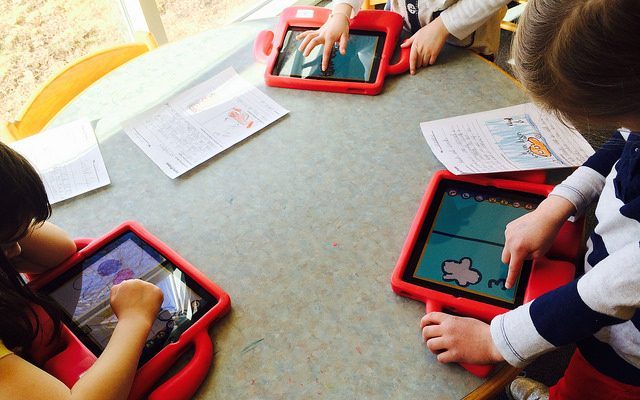Fostering Responsible Digital Citizenship

Anytime we are online we leave a trail of information. We leave some of this behind intentionally. But, some of the information is collected without our knowledge. The students of today have spent their entire lives online. In fact, they have intentionally shared most of their life experiences online. We teach about how to be a good citizen in school, but what to we teach our students about digital citizenship. It can be a challenge to help students understand the importance of guarding their reputation in a virtual world.
The trail of data we leave online, as we navigate cyberspace, is often referred to as our digital footprint. I actually like to think of it more like digital fingerprints. Let me tell you why. With footprints, you can look behind you and see physical evidence of where you have been. Fingerprints are more subtle. You can’t always see fingerprints without special equipment. Often times you do not even realize you have left them behind. Also when you try to get rid of fingerprints, it is impossible to know if you have erased them all.
The evidence of our activity on the internet is much like fingerprints. It is easy to leave behind traces of where we have been without even realizing it. Students need to understand this so they can be conscious of what they do online. What they post now and the sites they interact with can affect them far into the future. Students must guard their privacy, money, reputation and relationships. This is important not only in the physical world but also online.
It can be difficult for our generation to relate to living life online as a teen. I am sure many of us feel fortunate that everything we did as teenagers is not lingering out there somewhere in cyberspace. We can’t give our students concrete examples of how what we posted when were their age is affecting us today. Nevertheless, educators must communicate to students the importance of being a good digital citizen.
When talking to students about privacy, it is important to understand that their views on personal are different from ours. It might be better to approach this topic from a safety standpoint. Students should not post anything that they would not say to a stranger. Posting things like birth dates, contact information or school information in a public place can be dangerous. Help students to understand that “free things” they sign up for on the internet actually come with a price. That price is giving up some of your privacy. These sites and apps sell your data. Before signing up for something students should think about how this information is shared.
Teenagers are often victims of identity theft. One reason is because most of them have perfect credit because they are too young to have accumulated any debt. Another reason is because many teens make it easy for cyber criminals to get their personal data. Students learn about what financial activities should and should not take place online. Where these activities are conducted is also important. Public computers should not be used for financial transactions. Students should also know how to create strong passwords. They should also learn to manage these passwords so they do not use the same one over and over.
The teenage years are a time when you are just figuring out how to be in relationships. The internet adds another level of complexity to this experience. While the internet can be a great way to develop relationships, it can also destroy relationships. Students should always keep in mind that there is actually another person on the other side of that keyboard. Another person that has feelings just like they do. Bullying is unacceptable in the real world and online. Bullying in either setting can have devastating consequences. Young people should always ask themselves if what they are posting might hurt someone. Students also need to understand that they can end online relationships just like real-world ones. Instructing students on how and when to block or delete internet contacts can be valuable for them.
Long-term thinking should guide everything that students post online. They need to think about how what they are doing now will affect their future opportunities. I have always liked to live by the “Grandma Law”. Is this something that I would want my grandma to see? Because let’s face it, she will probably see it at some point. Employers and colleges are just a couple of the entities that will be looking at what students post now, in the future. Ask students if they would want to have all their social media posts read back to them at a job interview.
When you are online you are shaping your reputation, whether you like it or not. It is sad but true that students are posting things that will come back to haunt them. As educators, we must inform our students about the digital fingerprints they are leaving behind. It is just as important for us as adults and professionals to set a good example by being responsible digital citizens.






